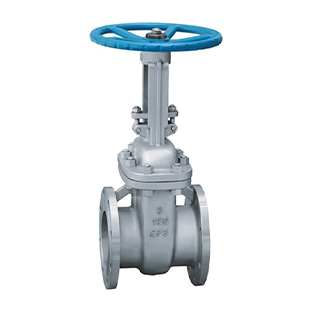DN200 Gate Valve Manufacturer Offering High-Quality Products for Various Industrial Applications
Understanding DN200 Gate Valves A Comprehensive Overview
Gate valves play a crucial role in various industrial applications, functioning primarily as on/off valves that provide minimal fluid resistance when fully opened. Among the various types of gate valves, the DN200 gate valve is notable for its specific size designation, indicating a nominal diameter of 200 mm (approximately 8 inches). This article aims to explore the characteristics, manufacturing processes, applications, and benefits of DN200 gate valves, especially focusing on the considerations when dealing with factory production.
Design and Characteristics
The DN200 gate valve is typically designed with a linear motion mechanism that raises or lowers a gate (or wedge) to control fluid flow. The major characteristics of these valves include robust construction, reliable sealing capabilities, and the ability to handle a wide range of pressure conditions. They are usually made from durable materials like stainless steel, cast iron, or forged steel to withstand corrosive environments and high-pressure systems.
With their ability to minimize turbulence and pressure drop when fully opened, DN200 gate valves are ideal for applications where flow volume is essential. Additionally, they can be operated manually or automatically, providing flexibility in various operating conditions.
Manufacturing Process
The manufacturing of DN200 gate valves requires precision engineering and adherence to industry standards. The production process typically involves several key stages
1. Material Selection High-quality materials are essential for durability and performance. For instance, stainless steel is preferred for applications that involve corrosive fluids.
2. Casting and Forging Valves are manufactured through casting or forging, depending on the design requirements and material properties. The body of the valve is crafted to ensure structural integrity.
3. Machining After casting, the valve components undergo precise machining to achieve the desired dimensions and surface finishes. This step is vital for ensuring proper sealing and performance.
dn200 gate valve factory

4. Assembly All components, including the body, gate, and bonnet, are assembled thoroughly. Care is taken to ensure that seals and gaskets are correctly positioned to prevent leakage.
5. Testing Before the valves can be shipped, they are subjected to rigorous testing, including pressure tests and flow tests, to verify their functionality and reliability.
6. Quality Control A final quality control check ensures that each valve meets the requisite standards and specifications before delivery.
Applications
DN200 gate valves are utilized in a variety of applications across different industries. Common sectors include
- Water Treatment Used in water supply and wastewater treatment plants to control the flow of water. - Chemical Processing Essential for managing the flow of chemicals, often in environments that require corrosion-resistant materials. - Oil and Gas Employed in pipelines and refineries to manage the flow of crude oil and natural gas. - Power Generation Utilized in power plants for cooling water and steam lines.
Benefits of DN200 Gate Valves
The advantages of using DN200 gate valves are many. They provide a straightforward method of flow control with a simple quarter-turn operation, requiring minimal space in installations. Their design also minimizes flow resistance when open, which leads to efficient operational performance. Additionally, because they can be fully opened or closed, they prevent pressure drop and allow maintenance activities without significant disruptions to the system.
In conclusion, DN200 gate valves represent a vital component in numerous industrial applications, manufactured with precision to ensure performance and reliability. Understanding their design, manufacturing processes, and applications is essential for anyone involved in the selection and installation of valves within various piping systems. The robust nature and efficient operation of these valves make them a preferred choice for many engineers and plant operators.
-
Breakthrough in Domestic Low Temperature Valve Technology in ChinaNewsAug.18,2025
-
From Machinery to Intelligent Brain: The Digital Transformation Wave of the Valve IndustryNewsAug.18,2025
-
PCVEXPO 2025NewsAug.18,2025
-
The Key to Fluid Control: Exploring the Advantages of Ball Valves in Industrial SystemsNewsJul.09,2025
-
The Versatile World of 1, 2, and 3 Piece Ball ValvesNewsJul.09,2025
-
Stainless Steel Ball Valves: The Ideal Choice for Efficient Flow ControlNewsJul.09,2025
-
Optimizing Fluid Control with Ball Float ValvesNewsJul.09,2025




